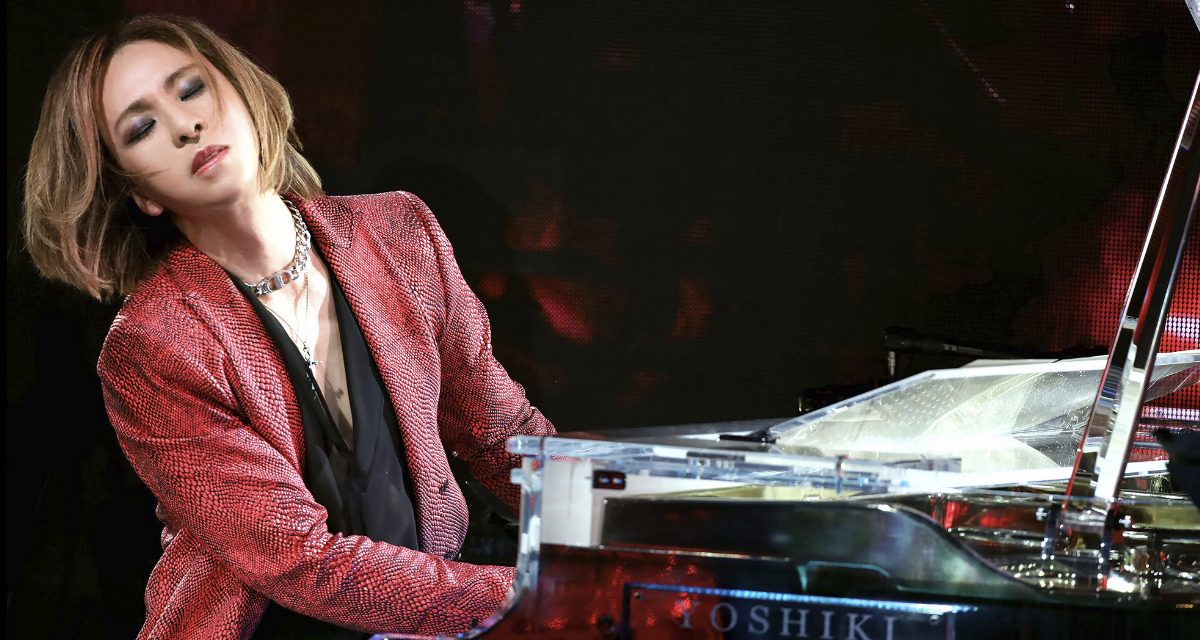Curated From jrocknews.com Check Them Out For More Content.
YOSHIKI, one of the most influential musicians in Japan, has made an enduring impact in both the rock and classical music realms. He’s renowned as the founder of the globally beloved rock band X Japan and the leader of the supergroup THE LAST ROCKSTARS, reshaping the rock genre for generations. However, his creative prowess extends far beyond the boundaries of rock and roll.
As a classical composer, YOSHIKI composed the theme song Red Swan for the popular anime series Attack on Titan, with vocals provided by the rock artist HYDE. Moreover, his 2013 album, YOSHIKI Classical achieved international acclaim by hitting the number-one spot on the classical charts of iTunes Stores in ten different countries.
His tradition of breaking barriers continues. In September 2023, YOSHIKI achieved a historic milestone by becoming the first Japanese artist to leave his handprints at the TCL Chinese Theatre in Hollywood. Now, YOSHIKI is preparing to take center stage at the Royal Albert Hall in London, Dolby Theater in Los Angeles, and Carnegie Hall in New York for “Requiem: YOSHIKI Classical World Tour”. He will become the first Japanese artist to headline these iconic venues.
As he stands on the brink of this world tour, celebrating the 10th anniversary of his album YOSHIKI Classical, JROCK NEWS had the privilege of interviewing this living national treasure. During the interview, we explore his upcoming tour, his directorial debut in YOSHIKI: Under the Sky and the iconic moment when he left his handprints at the TCL Chinese Theatre.
Your rock band, THE LAST ROCKSTARS, made a powerful debut earlier this year. However, Requiem: YOSHIKI Classical World Tour reveals a different side of you as a musician. What do you hope fans discover from this experience, or what do you hope they take away from it?
This classical tour is going to be like something I’ve never attempted, which means, I’m going to be doing an unusually crazy setlist.
I think my strength is being a rock artist as well as a classical artist. I somehow want to combine both sides of me in a very crazy way to play this upcoming classical show. So it’s a classical show, but I’m going to do something I’ve never done. I’ll add a rock element to it.
This tour also marks a huge milestone for you with the 10th anniversary of your album YOSHIKI Classical and becoming the first Japanese artist to headline these historic venues—Royal Albert Hall in London, Dolby Theater in Los Angeles, and Carnegie Hall in New York. Could you share with us your personal feelings about this milestone?
This tour was actually decided right after my mother passed away last year. I was about to give up. I didn’t know that losing my mother would hit me this hard.
But then, I started composing a song called “REQUIEM”, dedicated to my mother. At the same time, my agent in America asked me if I wanted to do this tour. I was like, you know what? The song “REQUIEM” has started to heal my heart. It might be able to heal some people around the world.
I thought, “It’s going to be very hard, but let’s do it”. So, this tour is very meaningful for me. It’s like a big challenge.

YOSHIKI pours his heart into “REQUIEM”.Nori (JROCK NEWS)
What challenges do you anticipate during this world tour?
Well, I’m still in the process of creating a set list, rehearsing, and everything.
I’m going to have a hybrid of the audience, you know—some of the audience coming from the rock audience or some of the classical audience. I thought, “How can I shock both of them in a good way”, you know?
So, there are going to be a couple of genres combined in this show. I’m kind of looking forward to seeing what they’re going to write after this. They might have seen one of the most historical, amazing shows—or somebody may say it’s the most disastrous show they’ve seen [laughs]. But it will be a very shocking show regardless.
The album YOSHIKI Classical included an orchestral version of X Japan’s Forever Love. On this tour, which popular songs from your repertoire can the audience look forward to hearing?
It’s going to be a combination. Of course, I’m going to play Forever Love, for sure. I’ll play Endless Rain, things like that. But at the same time, I want to play the piano concerto I composed for the Japanese Emperor’s 10th anniversary.
Of course, I’ll play some of the classical composers, such as Beethoven, Chopin, and Tchaikovsky—those amazing composers. It’s kind of a combination of a lot of things.
For those songs you mentioned, such as Forever Love and Endless Rain, how have you adapted these songs or reimagined them for a classical performance?
It kind of came about organically. I realized a long time ago that my rock compositions can be easily transferred to classical music because the melody has a classical element to it. I started in music by studying, learning classical piano first when I was four years old. So, classical music was always in me.
Then, after my father’s death when I was 10 years old, I started playing rock drums. So naturally, there is a classical element in all my compositions.
As the first Japanese artist honored at the TCL Chinese Theater in Hollywood, which is even more exclusive than Hollywood’s Walk of Fame, what were your feelings or thoughts when you placed your hands in artist history?
I felt like I was dreaming. Like I’m going to wake up the next day thinking, “Oh my God, I had a very interesting dream” [laughs]. But, of course, the next day I woke up and thought “Oh my gosh, what happened?”.
I’m very grateful because, at the same time, I thought that I couldn’t make it there without my fans’ support. I just have to thank my fans again and again and again. I had to go through a lot of dramatic moments in my life, but my fans have always been there for me, so that’s why I’m still here.
And then, you know, I got my handprints and footprints there, and all I could think was it’s because of my fans.
How do you think this might inspire or open doors for future Japanese artists?
I might have said it in my speech, but if I can make it, anybody can. I’m just no different than anyone else. I’m just trying and struggling to make it through every single day. But luckily, again, I say I have amazing fans. Then all the pain I went through, I transferred it to art, such as melody, and music.
So, again, if I can do it, anybody can. If I could say one thing, I’d say “Just don’t give up. Keep on trying”. Then, your dream can come true.
I’d like to also talk about your music documentary film, YOSHIKI: Under the Sky, which premiered in the US, UK, and Japan. It was also your directorial debut. What challenges did you face in your new role as a director, compared to your music career?
I didn’t feel it was really that different for some reason, because when I compose music or produce artists, it’s kind of the same vibe. I’ve been thinking of doing something like this like for a long time, but this is the first time I took on the challenge. It came about organically, naturally.
The film features quite a diverse lineup of artists. How did you select the musicians for Under the Sky?
Thank you for saying this. I do classical music, rock music, and everything in between—So I didn’t want to have just the rock artists, I wanted to intentionally diversify the artist lineup. Such as Sarah Brightman, who represents the classical side, and then there’s The Chainsmokers who do EDM. So yeah, I wanted to do that intentionally.
Basically, Under the Sky talks about breaking the boundary or breaking walls. Not only the boundaries of the universe but also breaking the boundaries of genre and everything. That’s part of the reason those amazing artists could join from different genres.
What message do you have for our readers around the world?
Again, thank you so much for supporting me. I’ll be spending the coming days preparing for the upcoming classical world tour. I’m all in. I’m putting a hundred percent, a thousand percent of myself into this, just trying to challenge what classical music means, or what rock music means. I’m trying to do something very innovative, or revolutionary. I’m trying to do that kind of show, so if you’re around, please come see my show.
Thank you so much, Yoshiki. It’s been a pleasure talking with you, and I wish you the best of luck on your upcoming world tour.
JROCK NEWS thanks YOSHIKI and staff for making this interview possible. Please see ticket information for Requiem: YOSHIKI Classical World Tour below.



